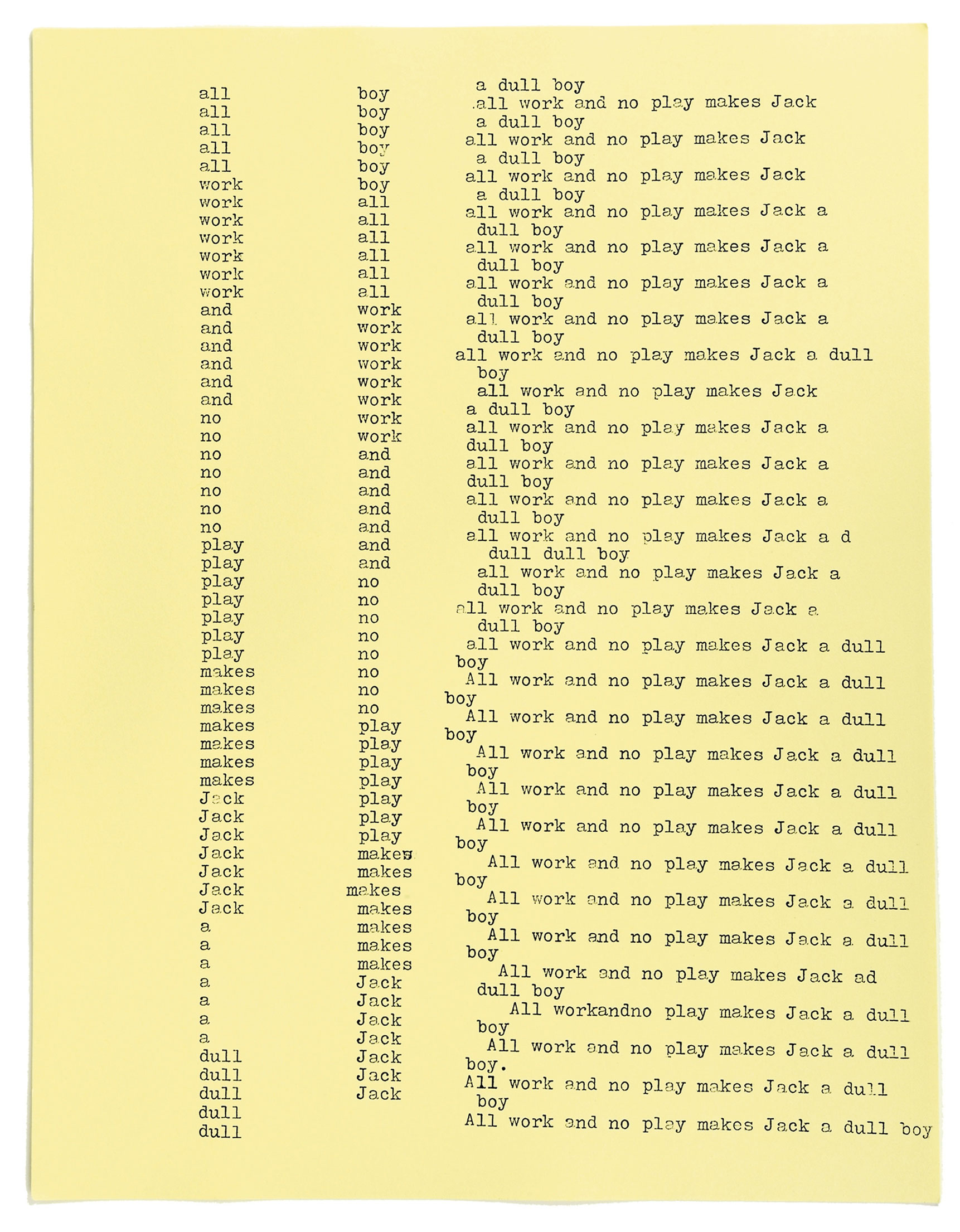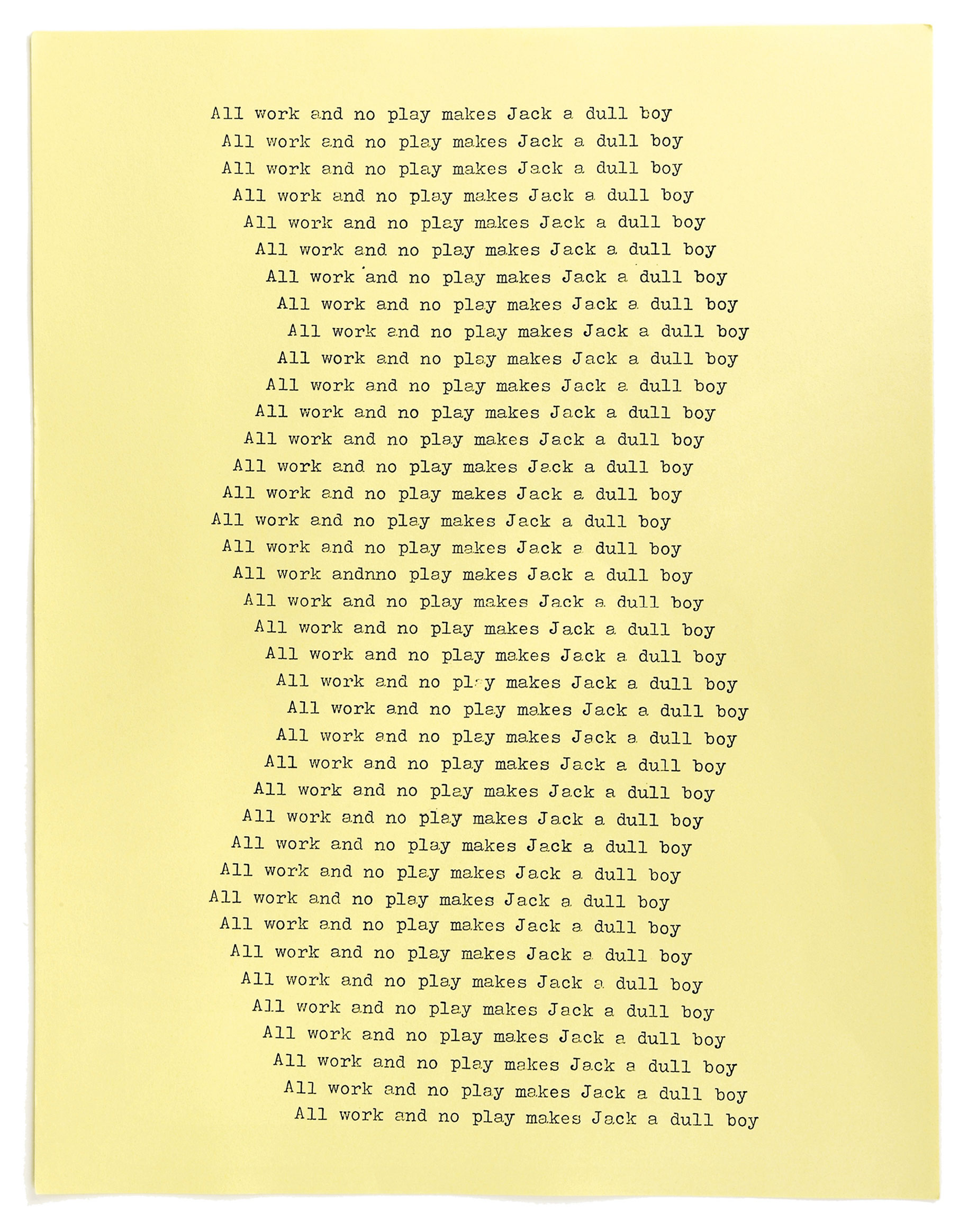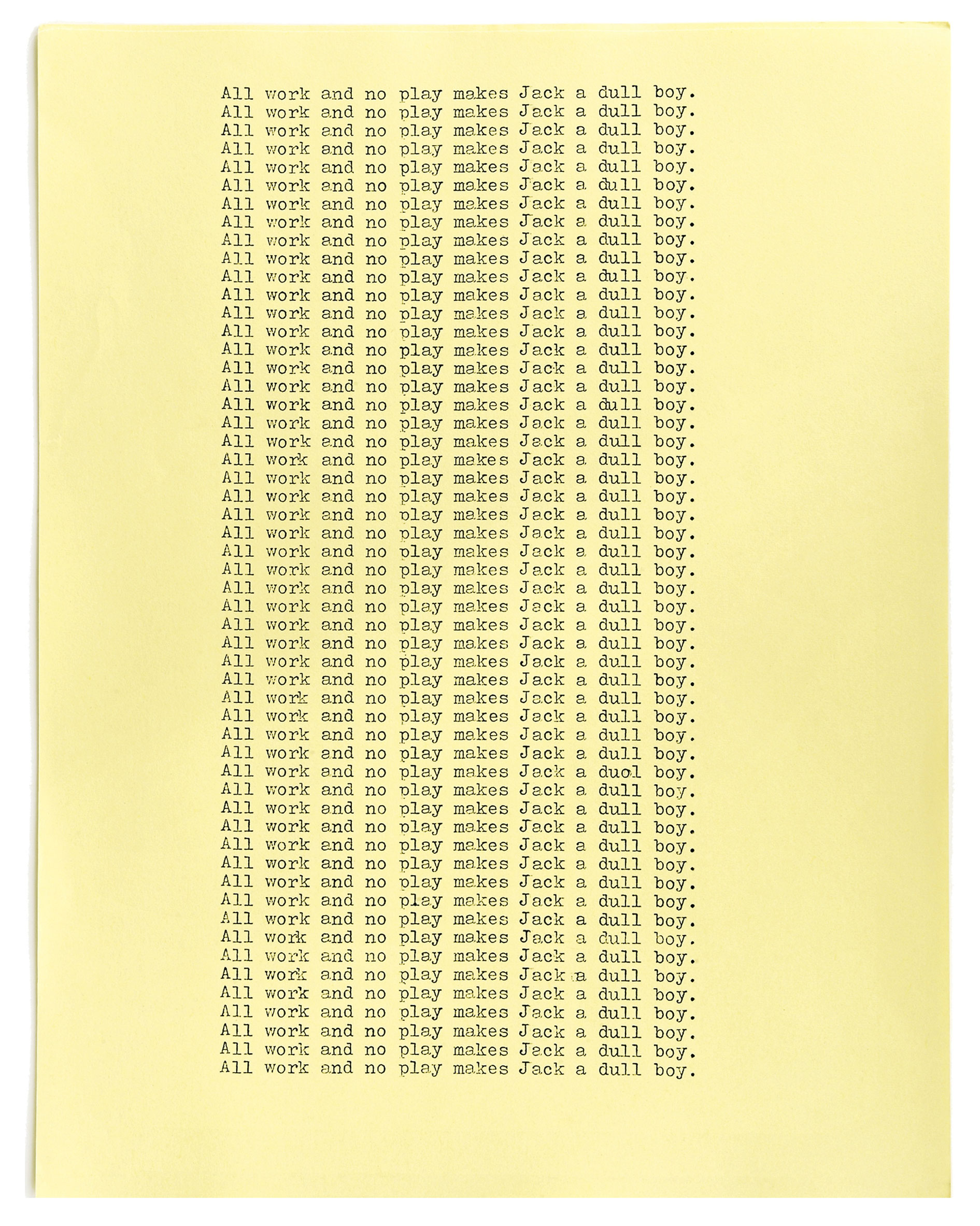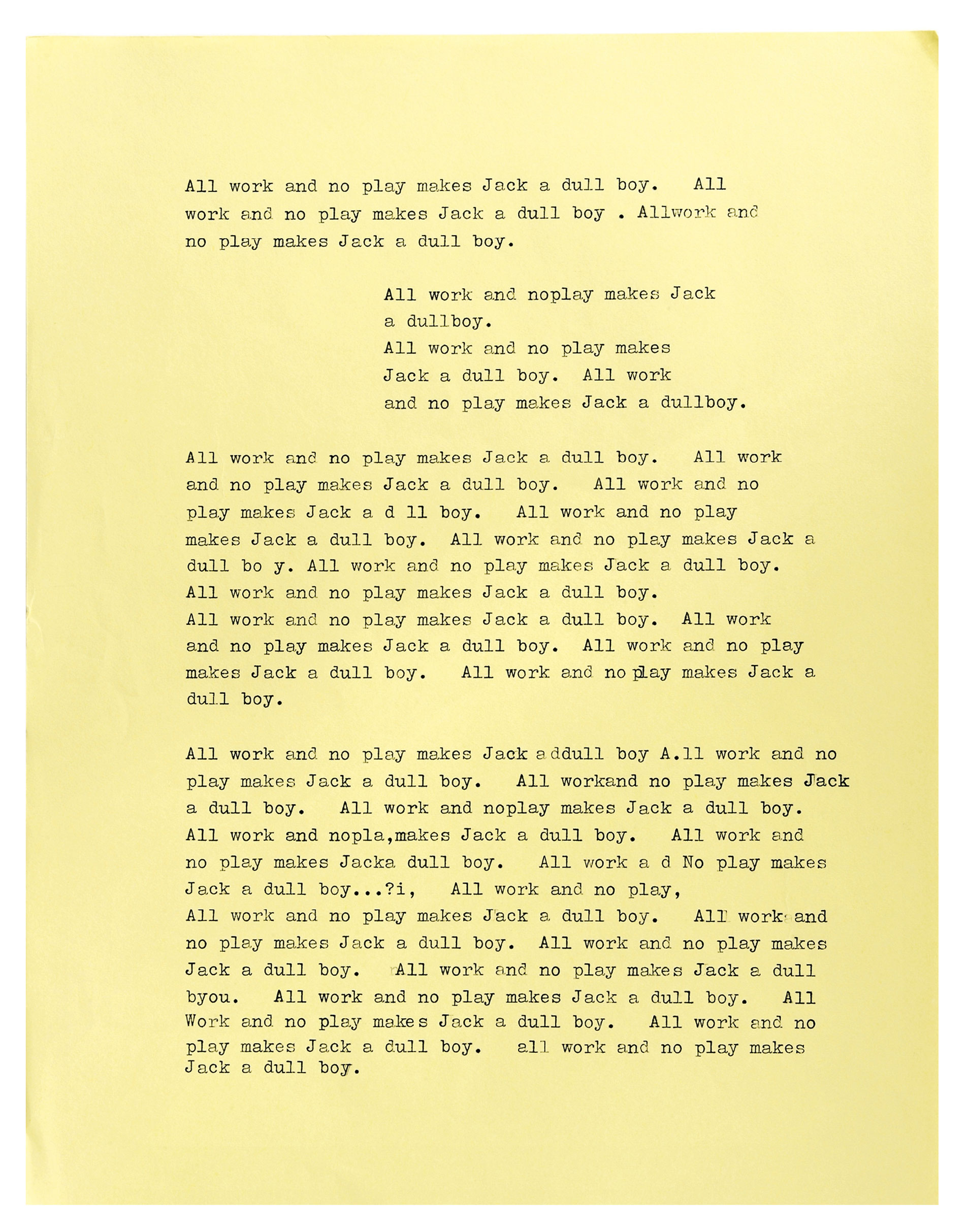Artist Project / All Work and No Play
When Jack cracked
Adam Broomberg & Oliver Chanarin
A pivotal scene in The Shining, Stanley Kubrick’s classic film adaptation of the Stephen King novel, occurs when Wendy, the wife of the protagonist Jack Torrance, enters the enormous reception hall in the isolated mountain hotel where her husband has been obsessively typing away on his “novel.” Previously barred from the space by the increasingly unstable Jack, Wendy nervously goes to his typewriter and finds on its roller a sheet of paper on which the message “All work and no play makes Jack a dull boy” has been typed over and over again. Frantic, she turns to the thick stack of pages neatly piled nearby, where she finds the exact same phrase on the top dozen or so pages she rifles through before being interrupted by Jack. The manuscript, which she had imagined would be a sign of her husband’s artistic achievement, is revealed instead as an undeniable symbol of his descent into madness.
Never one to stint on artistic integrity and veracity, Kubrick used no shortcuts for the relatively simple scene. As artists Adam Broomberg and Oliver Chanarin discovered during recent research in the Kubrick archives in London, instead of having the sentence typed on only the few sheets seen by viewers, the director asked his secretary Margaret Warrington to type it on each one of the 500-odd sheets in the stack. What’s more, he also had Warrington type up an equivalent number of manuscript pages in four languages—French, German, Italian, Spanish—for foreign releases of the film. For these, he used idiomatic phrases with vaguely similar meanings:
Un “Tiens” vaut mieux que deux “Tu l’auras.”
A bird in the hand is worth two in the bush.
Was du heute kannst besorgen, das verschiebe nicht auf morgen.
Don’t put off until tomorrow what you can do today.
Il mattino ha l’oro in bocca.
The early bird gets the worm.
No por mucho madrugar amanece mas temprano.
Even if you rise early, dawn will not come any sooner.




Adam Broomberg & Oliver Chanarin have been working together for over a decade and are still friends. Their books include Ghetto (Trolley, 2003), Chicago (steidlMACK, 2006) and Fig. (steidlMACK, 2007). For more information, see www.choppedliver.info [link defunct—Eds.].